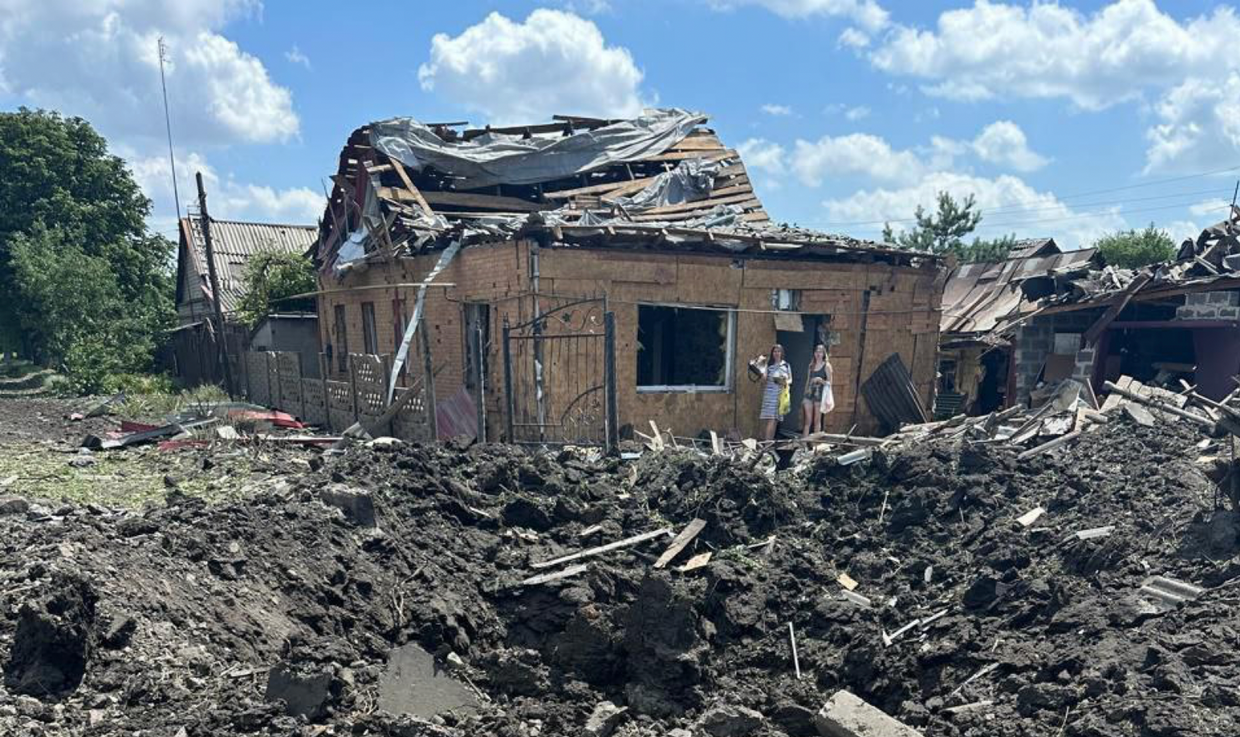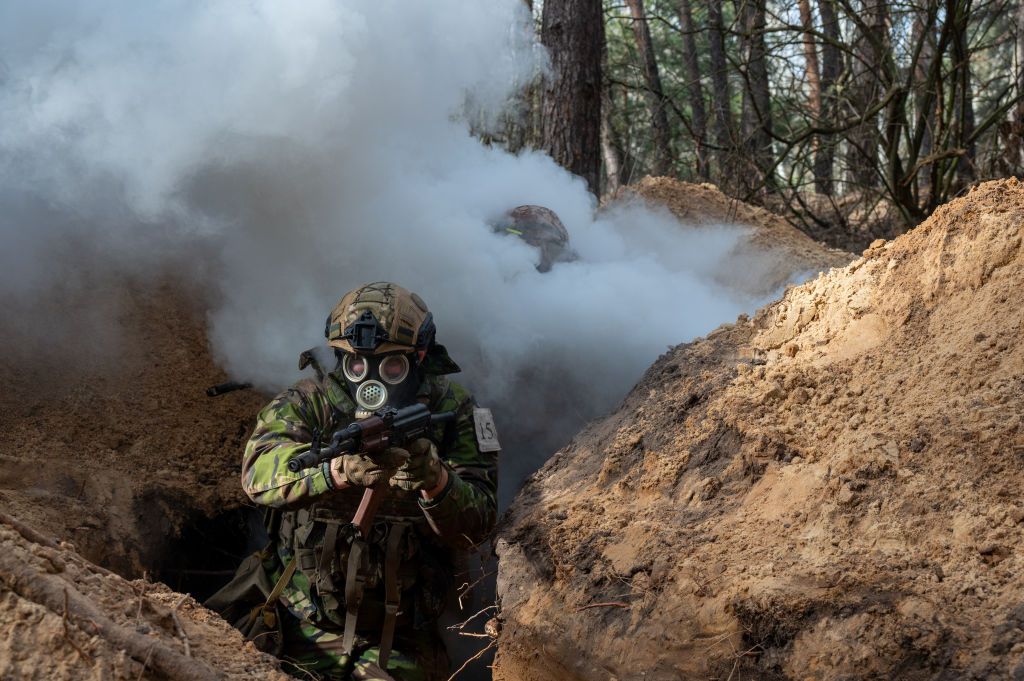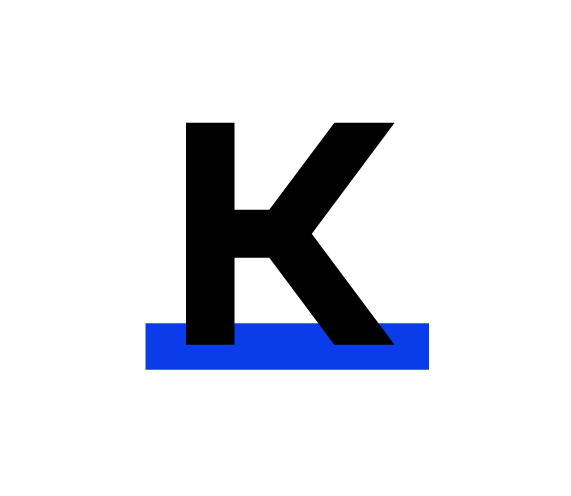Key developments on June 24:
- Ukraine reports increase in Russian chemical weapons attacks on battlefield
- Zelensky dismisses Lieutenant General accused by soldiers of heavy losses
- Russian saboteurs likely behind arson attack on German factory, security officials tell WSJ
- EU Council announces 14th round of sanctions against Russia
- At least 5 dead, 41 wounded after Russian missile attack on Pokrovsk
Ukraine recorded 715 cases of Russian chemical weapons use on the battlefield in May, 271 more than in the previous month, the Ukrainian military's Support Forces said on June 24.
In a post on Facebook, the Support Forces said most cases were of CS gas, also referred to as tear gas and typically used as a crowd-control agent by law enforcement agencies around the world.
Although less lethal than other chemical weapons, it was used extensively in World War I before the 1925 Geneva Protocol prohibited the use of chemical and biological weapons in war.
The Support Forces said that, from Feb. 15, 2023 to May 24, 2024, a total of 2,698 cases had been recorded which had led to 1,385 incidents of Ukrainian soldiers needing medical attention.
Ukrainian military officials have previously accused Russia of using chloropicrin and other chemical weapons.
Chloropicrin is often used as an herbicide. According to the U.S. Centers for Disease Control (CDC), exposure to its vapors can cause severe irritation to the skin, eyes, and, if inhaled, internal organs.
The Organization for the Prohibition of Chemical Weapons (OPCW) said on May 7 that accusations from both Ukraine and Russia that the other has used chemical weapons during the full-scale invasion remain "insufficiently substantiated."
"Both the Russian Federation and Ukraine have accused one another and reported allegations of use of chemical weapons to the organization," the OPCW said in a statement.
"The information provided to the organization so far by both sides, together with the information available to the secretariat, is insufficiently substantiated."
The OPCW said the situation "remains volatile and extremely concerning" and reiterated that it was against international law to use "riot control agents at war on the battlefield."
The organization also noted it had not received official requests to investigate the use of chemical weapons from either Ukraine or Russia.
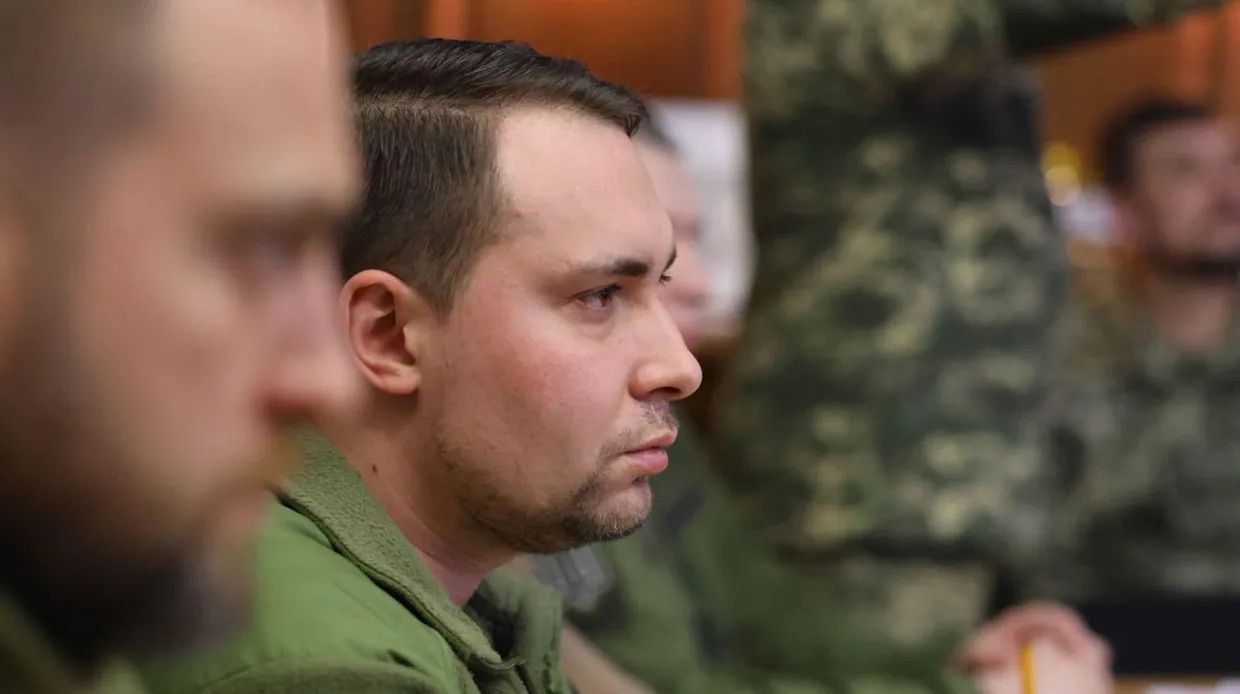
Zelensky dismisses Lieutenant General accused by soldiers of heavy losses
President Volodymyr Zelensky announced on June 24 that he had replaced the Commander of the Joint Forces, Lieutenant General Yurii Sodol, with Brigadier General Andrii Hnatov.
Lieutenant Colonel Bohdan Krotevych, one of Azov Brigade's commanders, said on June 23 that he filed an official complaint to the State Bureau of Investigation calling for an investigation of one of the generals.
"I wrote to the SBI calling for an investigation into one military general, who, in my opinion, has killed more Ukrainian soldiers than any Russian general," he wrote.
Krotevych did not specify the general's name, but according to Ukrainska Pravda's undisclosed sources, the general in question was Sodol.
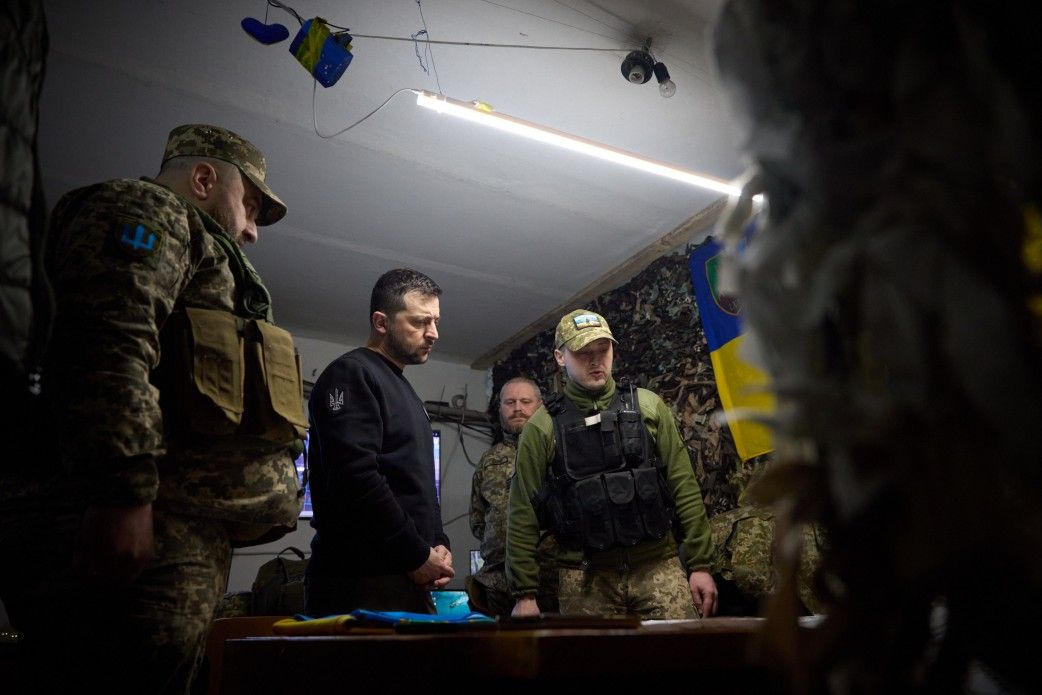
Russian saboteurs likely behind arson attack on German factory, security officials tell WSJ
Russian saboteurs were allegedly behind an arson attack on a Berlin factory owned by German metal manufacturer Diehl, the Wall Street Journal (WSJ) reported on June 24, citing unnamed security officials.
The factory, which belongs to Diehl Metal Applications, a subsidiary of the Diehl group that manufactures IRIS-T air defense systems used by Ukraine, caught fire in May, resulting in the destruction of much of the building.
At the time, widely circulated social media posts alleged that Russian operatives had attacked a factory producing defense material, and Russian news claimed that the factory that manufactures IRIS-T systems had burned down.
The factory in question was actually separate from Diehl's defense production subsidiary, and there was no evidence that it was involved in creating military equipment.
The factory has since resumed operations.
German investigators initially said that the fire was likely accidental, and Diehl's insurers issued a report on June 21 saying that it was the result of technical problems. At the same time, a company spokesperson acknowledged that the fire may have been caused by "sabotage."
Unnamed security officials told the WSJ that details revealed in the subsequent investigation point to Russian involvement and the direct work of "experienced professionals."
Two German officials said that "electronic-communications intercepts that provided evidence of Russia's involvement weren’t admissible in German courts, preventing authorities from clearly attributing the attack and pursuing criminal charges."
Western intelligence officials have warned about increasing Russian sabotage operations across Europe.
Several suspects have been arrested in recent months in Germany, Austria, Estonia, and other countries for allegedly spying for Russia or other forms of collaboration with Russian intelligence.
EU Council announces 14th round of sanctions against Russia
The EU Council announced on June 24 that it had adopted the 14th round of sanctions against Russia, aimed at tackling the circumvention of existing measures and to further restrict profits from Russia's energy industry.
Despite 13 previous rounds of sanctions from the EU and additional measures from the U.S. and other allies, Russia's economy has remained unexpectedly resilient.
A survey conducted by the independent Russian polling firm the Levada Center earlier in June found that only 11% of respondents said that sanctions had personally affected them or their families.
The new package adds 116 individuals and entities to the sanctions list and adds a number of additional measures, including the prohibition of any EU facilities from being involved in the transshipment of Russian liquified natural gas (LNG) to any third-party countries.
It also forbids any new investments or provision of goods toward Russian LNG projects, such as the Arctic LNG 2 and Murmansk LNG.
The new package bans the usage of the "System for Transfer of Financial Messages" (SPFS), a tool employed by Russia's Central Bank to help counter existing sanctions.
Finnish Foreign Minister Elina Valtonen said that the work on the 15th sanctions package will "start immediately."
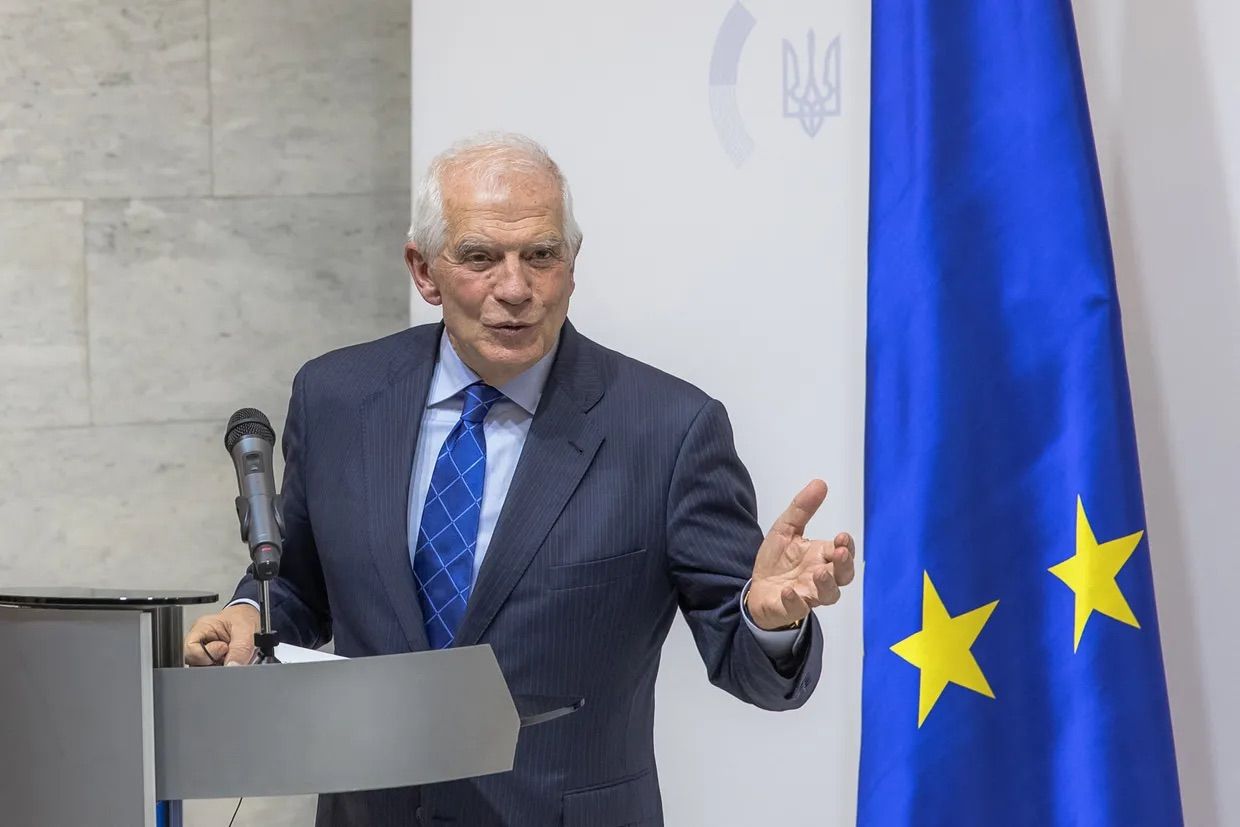
At least 5 dead, 41 wounded after Russian missile attack on Pokrovsk
Russian ballistic missile attack on the city of Pokrovsk in Donetsk Oblast killed five people and wounded 41 others, local authorities said on June 24.
In a post on Telegram, Governor Vadym Filashkin said Russian forces fired two Iskander missiles at the city, which is located around 25 kilometers (16 miles) from the front line, destroying a house and damaging 16 other homes.
"This is one of the largest enemy attacks on civilians in recent times," Filashkin added.
Three girls, aged 9, 11, and 13, as well as a 12-year-old boy, are among the wounded, Filashkin said.
The injured were taken to Pokrovsk Intensive Care Hospital, the governor said.
Earlier on June 24, Filashkin reported that a 63-year-old woman was killed and a 64-year-old man injured in a Russian attack on the town of Toretsk, also located in Donetsk Oblast.
Ukraine's Armed Forces last week reported an increase in Russian attacks near the town of Toretsk after a "long lull" in fighting in the area.
In his latest post, Filashkin said "not a single safe place has been left in Donetsk (Oblast)" and urged people to evacuate away from the frontlines.
